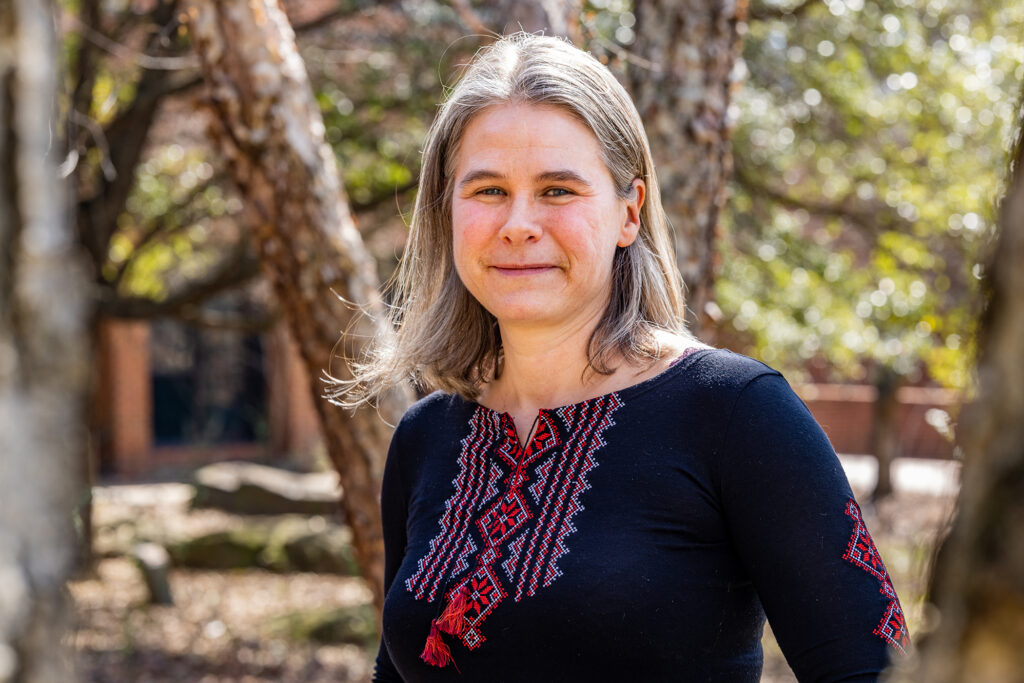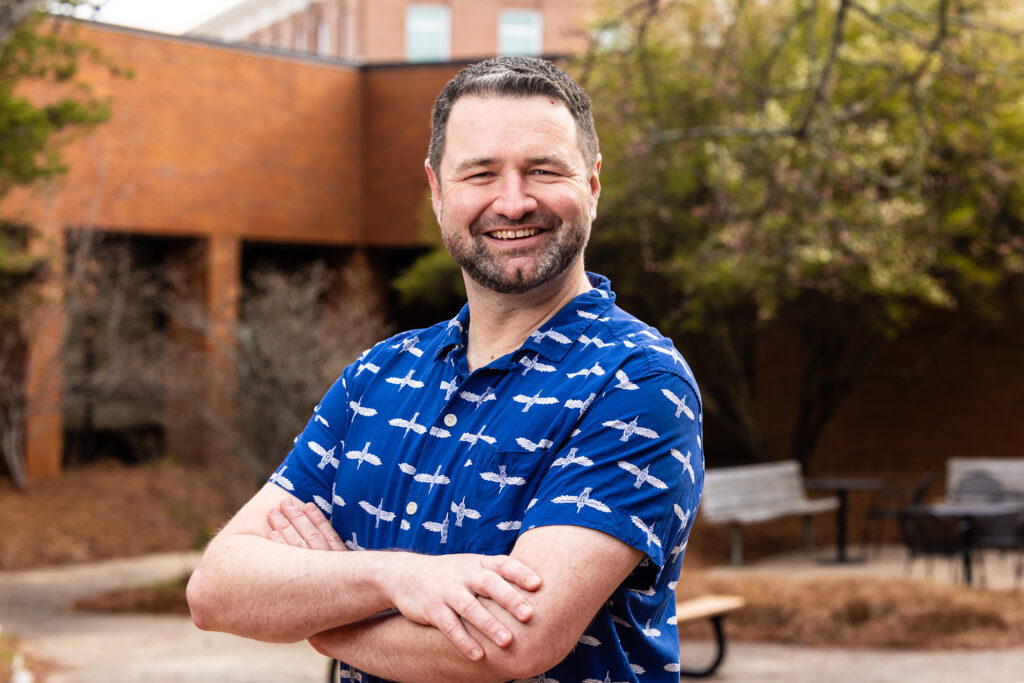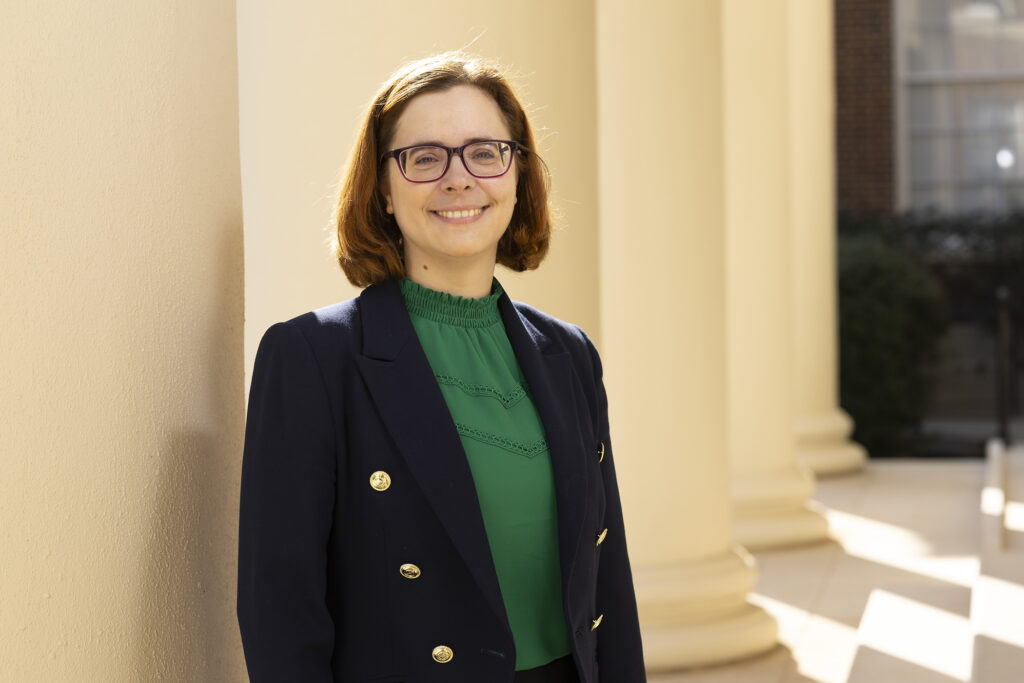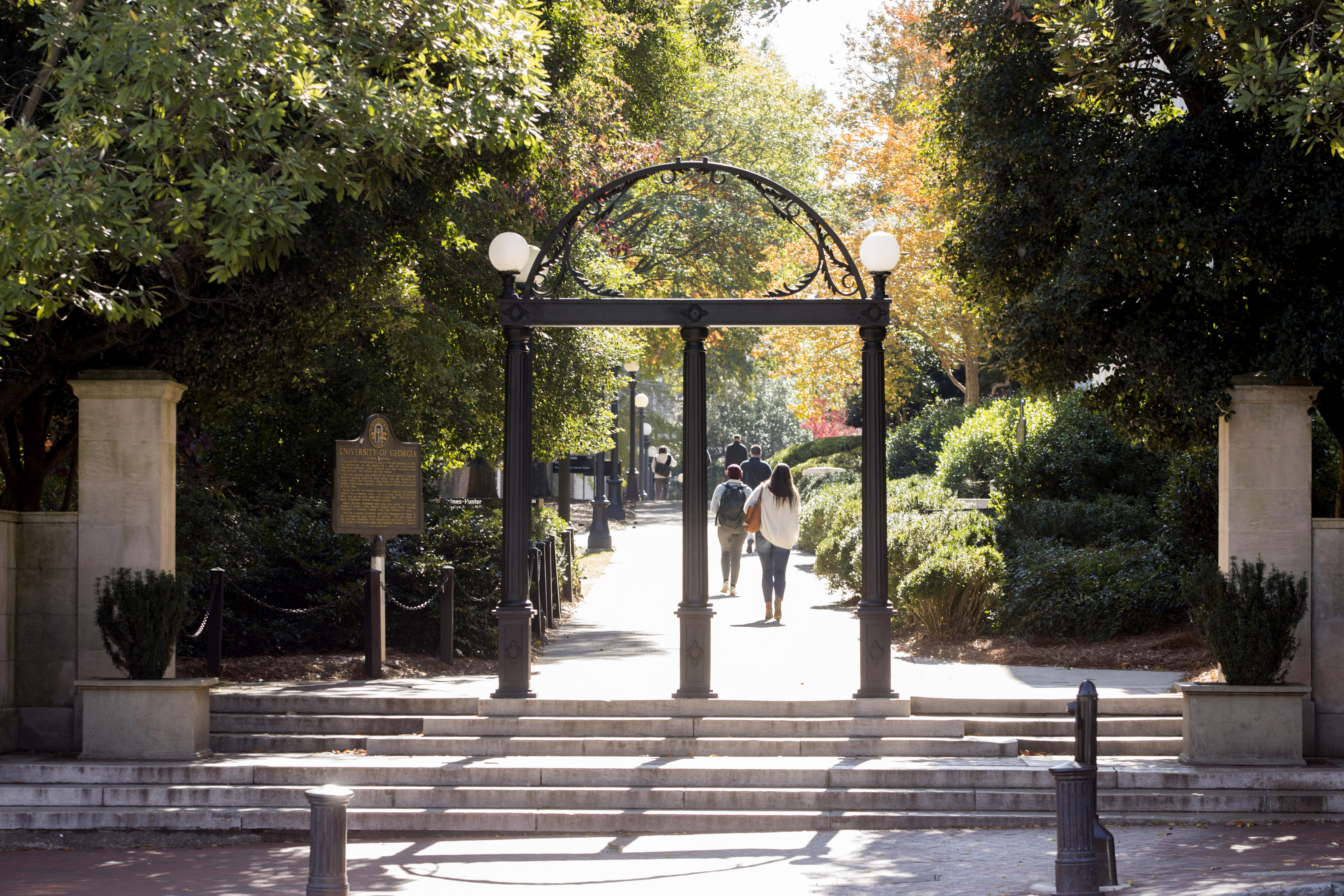Three UGA faculty members received a Russell Award for Excellence in Undergraduate Teaching. Russell Awards recognize outstanding teaching by faculty early in their academic careers. Award recipients receive $10,000. The Richard B. Russell Foundation in Atlanta supports the program.

Jill Anderson
Associate Professor
Department of Genetics
Franklin College of Arts and Sciences
Odum School of Ecology
Jill Anderson strives to foster critical thinking and create an inclusive and equitable environment in which all students can thrive.
“In my courses, I combine lectures, discussions and hands-on exercises to engage students in activities such as designing experiments, formulating hypotheses, graphing predictions and interpreting results,” she said. “I incorporate active and inquiry-based learning techniques into all levels of education to engage students, challenge their misconceptions, and encourage questions, analysis and synthesis.”
Although Anderson’s approach to each class might be different, she emphasizes that science is an inherently dynamic process in all of them. She co-teaches two courses: Evolutionary Ecology for undergraduates and Foundations in Evolutionary Genetics for graduate students.
In her undergraduate course, students learn that dynamic process by using available data to generate questions, test their hypotheses with available data, write reports and design future studies. These exercises challenge students to apply the concepts they’ve learned to the interpretation of authentic data and the design of follow-up studies.
“In my time spent with Dr. Anderson, she has always been truly passionate about evolutionary ecology, the wellbeing of her students, and operating to the highest standard,” one former student wrote.
Anderson has authored 61 peer-reviewed publications and received more than $2 million in grant funding, including an NSF CAREER grant. She’s also received the Sandy Beaver Excellence in Teaching Award.
“Jill is a highly skilled and responsive instructor who engages students in challenging work in evolutionary biology within a welcoming environment. She treats teaching as a valuable scholarly endeavor and is continually striving to improve her teaching to benefit students,” one colleague wrote.

Richard Hall
Associate Professor
Odum School of Ecology
Department of Infectious Diseases
College of Veterinary Medicine
Richard Hall seeks to engage his students with the amazing and diverse natural history that surrounds them.
“My approach to teaching is very much shaped by my interdisciplinary academic background and my passion for the natural world,” he said. “I feel I am most effective as a teacher and mentor when I am able to interweave my research, teaching and service.”
Hall has co-developed and taught four undergraduate courses, in addition to teaching four graduate courses. In all of them, he accommodates diverse learning styles, applies mathematical theory to life sciences and uses active learning to build comprehension of abstract scientific concepts.
Mentoring is particularly important to Hall. He has advised two postdocs and seven graduate students and served on 24 graduate student committees. In addition, he has supervised 19 undergraduate students in their research.
“Dr. Hall’s curiosity, passion and excitement for the natural world undeniably shaped my career goals and aspirations, as I’m sure he has done for many others,” one former student wrote. “He has instilled in me a love of knowledge, taught me to critically think about the world I’m in, and shown me there are still many wonderful things left to uncover. However, more importantly, he was really showing me how to invest in others, inspire my students, and to show love and kindness to all those I work with.”
Hall has authored 62 peer-reviewed articles, co-edited a book on animal behavior and parasites, and authored five textbook chapters or encyclopedia entries. Additionally, Hall has served as a lead investigator or senior personnel on 11 research grants.
“Dr. Hall successfully provides students with rigorous training in conservation and in mathematical approaches to ecological theory in a clear and accessible way. He then challenges students to apply this knowledge to real-world problems through active learning and project-based service-learning that benefits the Athens community,” one colleague wrote.

Laura Zimmermann
Associate Professor
Department of Economics
Terry College of Business
Department of International Affairs
School of Public and International Affairs
Laura Zimmermann centers her teaching and mentoring on three pillars.
She seeks to bring the world into the classroom through active learning and research exposure; empower students to follow their dream careers by preparing them for life after UGA; and ensure an environment of belonging in the classroom and beyond.
“Development economics and political economy are both highly dynamic fields where technical, conceptual, practical and ethical advancements are constantly made,” she said. “Traditional textbooks are therefore limited in their ability to give students a true sense of where the field of economic development is going. For that reason, I constantly innovate and adapt my course materials, both inside and outside the classroom, to bring the world into the classroom through active learning and research exposure.”
One example from her economics course has students take on the role of NGO workers in the aftermath of Haiti’s 2010 earthquake. They then compare their outcomes to real video footage and media reports.
Zimmermann has served as mentor of 65 economics undergraduate students for their senior theses and supervised 15 CURO research projects.
“Dr. Zimmermann remains one of my most important, impactful mentors to this day, and whenever I have reached out to discuss career plans, she has been just as attentive in giving advice as when I was a student,” one former student wrote.
Additionally, Zimmermann has received the Terry College of Business Outstanding Teacher Award and participated in the University of Georgia Teaching Academy Fellows Program.
“It is difficult to put a value on a student making the connection between their undergraduate studies and the ‘real world,’ but I think everyone can agree that it’s significant. Dr. Zimmermann focuses on ensuring that all her students make that connection,” one colleague wrote.


